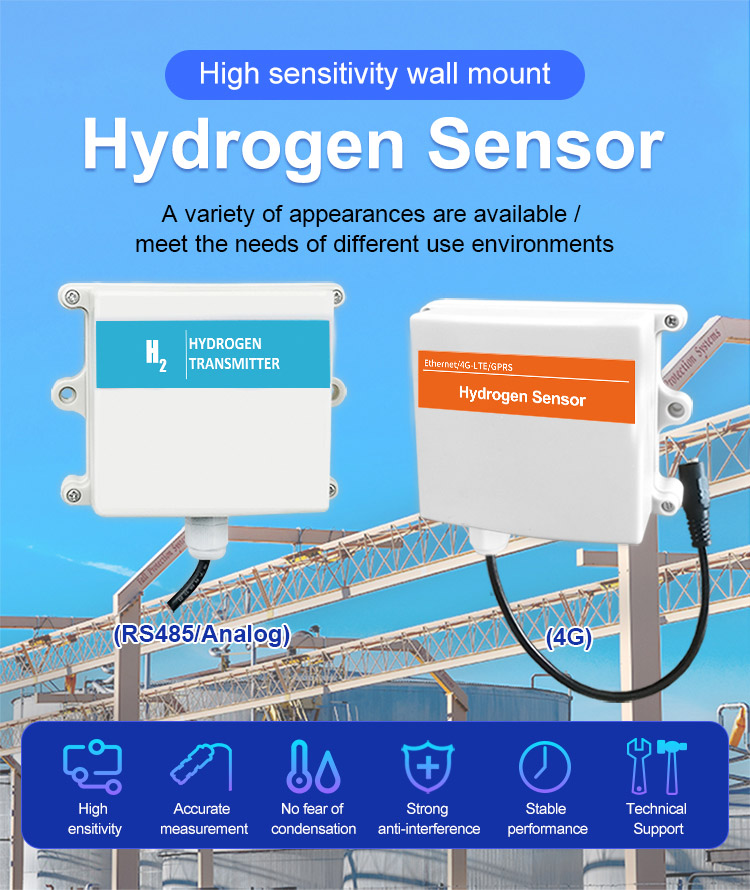The hydrogen sensor is an essential tool used in a wide range of industries to detect and monitor hydrogen gas levels. Whether it is in chemical plants, hydrogen fuel cell facilities, or battery manufacturing plants, this device plays a crucial role in ensuring safety and preventing potentially dangerous situations. With its reliable and accurate detection capabilities, the hydrogen sensor is highly valued for its ability to protect workers and maintain a safe working environment.

Advantages of the hydrogen sensor
One of the primary advantages of the hydrogen sensor is its ability to provide real-time measurements of hydrogen gas concentrations. Traditional methods of gas detection involved manual sampling and laboratory analysis, which were time-consuming and impractical in dynamic work environments. The hydrogen sensor’s capability to provide instantaneous readings allows workers to respond promptly to changing gas levels and potential hazards. By continuously monitoring hydrogen gas levels, the sensor ensures that workers are aware of any dangerous situations and can take appropriate measures to prevent accidents and injuries.
Furthermore, the hydrogen sensor excels at detecting hydrogen gas leaks even at low concentrations. Hydrogen is a colorless, odorless, and highly flammable gas, making it difficult to detect without specialized equipment. The hydrogen sensor overcomes this challenge by utilizing advanced detection mechanisms. It is capable of sensing even the smallest traces of hydrogen gas, ensuring that leaks are identified early on. This early detection is critical in preventing hazardous situations and allowing workers to address the issue before it escalates into a more significant concern.
In addition to its detection capabilities, the hydrogen sensor is recognized for its simplicity and ease of use. These sensors are designed to be user-friendly, allowing workers to operate them with minimal training or technical expertise. The sensor’s interface is often intuitive and straightforward, enabling quick and uncomplicated readings. Moreover, many hydrogen sensors are portable and lightweight, further enhancing their convenience and versatility in various work environments.
Another advantage of the hydrogen sensor is its cost-effectiveness. Workplace accidents can lead to significant financial losses, including medical expenses, legal fees, and compensations. By implementing hydrogen sensors, employers can minimize these risks by actively monitoring hydrogen gas levels and preventing potential accidents. The cost of installing and maintaining hydrogen sensors is relatively small compared to the potential consequences of an uncontrolled hydrogen gas leak. The investment in hydrogen sensors is well worth it, as it significantly contributes to maintaining a safe working environment and protecting both workers and the company’s assets.
In conclusion, the hydrogen sensor is a crucial device for ensuring safety in various industries where hydrogen gas is present. Its ability to provide real-time measurements, detect low gas concentrations, simplicity of use, and cost-effectiveness make it an invaluable tool for workplace safety. By utilizing hydrogen sensors, employers demonstrate their commitment to employee well-being and mitigate the risks associated with hydrogen gas exposure. With the reliable detection capabilities of hydrogen sensors, workers can work confidently knowing that potential hazards are monitored and controlled effectively.